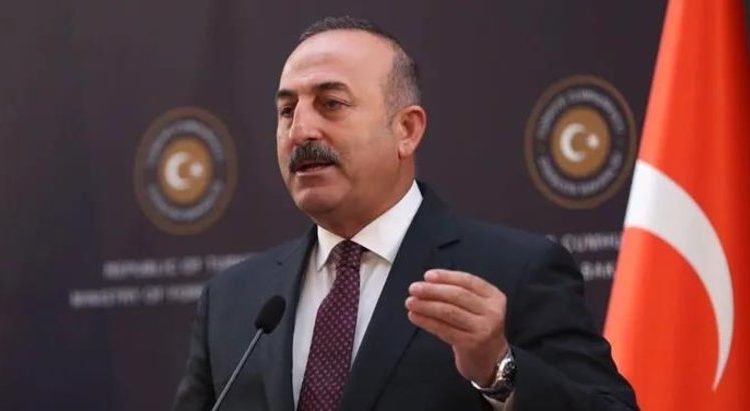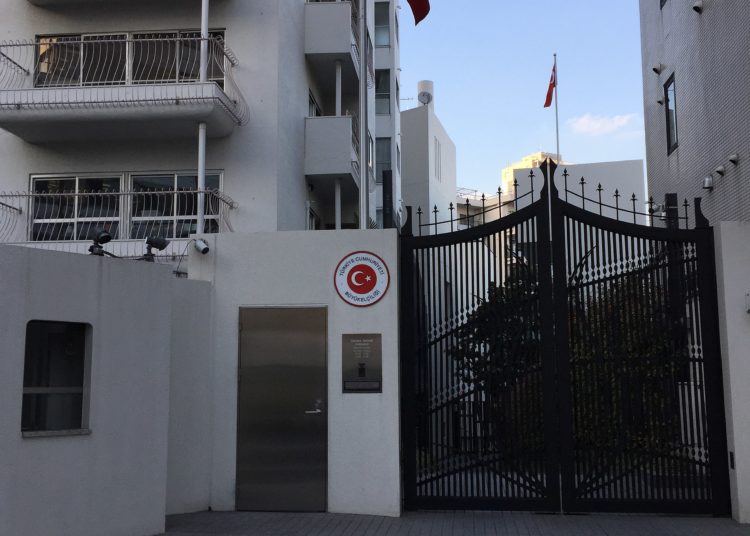Nordic Monitor
As part of its massive witch-hunt, the Turkish government used its diplomats in Japan to profile opponents of Turkish President Recep Tayyip Erdoğan and gather intelligence about them to help forge a criminal case against critics.
A coup attempt in July 2016 had direct consequences on critics of the Turkish president and led to a witch-hunt in Turkey and abroad. Judicial document obtained by Nordic Monitor revealed that the Turkish Embassy in Tokyo systematically spied on individuals allegedly linked to the Gülen movement, a group critical of President Erdoğan, in line with the global crackdown.
According to a December 18, 2018 decision by prosecutor Adem Akıncı, the Ankara Chief Public Prosecutor’s Office launched a separate investigation (file no. 2018/227683) into 37 Turkish nationals who were listed in espionage files dispatched by Turkish diplomats in Tokyo without any concrete evidence of wrongdoing.
The investigation included academics, educators, representatives of local institutions and associations, and prominent businessmen and their family members living in Japan.
According to the documents they were charged with “membership in a terrorist group” by Akıncı. The investigation was based on spying files created at Turkish diplomatic missions in Japan between 2016 and 2018, resulting in serious consequences in the Turkish judicial system.
Judicial document dated December 18, 2018 reveals spying on critics in Japan by the Turkish Embassy. (The addresses and names of the Turkish nationals have been redacted for security reasons):
Erdoğan has been targeting people affiliated with the movement since the corruption investigations of December 17-25, 2013, which implicated then-Prime Minister Erdoğan, his family members and inner circle.
In a recent report, the Stockholm Center for Freedom underlined that Erdoğan continued to relentlessly pursue anyone with alleged links to the movement in 2020. They have been targets of hate speech, hate crimes, unlawful prosecution, torture and abductions among other serious human rights violations.
Following the failed coup, the Turkish government carried out a massive purge of state institutions under the pretext of an anti-coup fight. Over 130,000 public servants, including 4,156 judges and prosecutors, as well as 20,610 members of the armed forces were summarily removed from their jobs for alleged membership in or relationships with “terrorist organizations” by emergency decree-laws subject to neither judicial nor parliamentary scrutiny.
According to a statement from the Turkish interior minister, a total of 292,000 people have been detained while 96,000 others have been jailed due to alleged links to the movement since the failed coup.

Critics of the Erdoğan government abroad, especially members of the movement, have been facing surveillance, harassment, death threats and abduction since President Erdoğan decided to scapegoat the group for his own legal troubles. They have often been denied consular services such as power of attorney and birth registry as well as revocation of their passports. Their assets in Turkey are seized and their family members at home risk criminal charges.
According to a report by Canadian newspaper The Globe and Mail, 15 Canadian citizens – including academics, journalists, real estate agents and a part-time taxi driver – were named as suspects in a Turkish “terrorism” investigation for supposed criminal activities such as writing or promoting articles supportive of the movement or downloading the ByLock messaging app.
Speaking to the newspaper, Turkish Ambassador to Canada Kerim Uras admitted the case. “Any embassy would focus on the threats targeting their countries. That’s what every embassy does,” he told The Globe and Mail.
Similarly, Foreign Minister Mevlüt Çavuşoğlu confirmed systematic spying on Turkish government critics on foreign soil. Çavuşoğlu said Turkish diplomats assigned to embassies and consulates have officially been instructed by the government to conduct such activities abroad. “If you look at the definition of a diplomat, it is clear. … Intelligence gathering is the duty of diplomats,” Çavuşoğlu told Turkish journalists on February 16, 2020 following the Munich Security Conference, adding, “Intelligence gathering and information collection are a fact.”
It is clear that Turkish diplomatic missions violate the domestic laws of receiving states and the principles of international law by conducting unlawful information-gathering campaigns and sweeping intelligence operations. Erdoğan’s envoys enjoyed the privileges and immunities described in the international conventions while they systematically spied on critics of the president, collected information on Turks living abroad and transmitted it to headquarters. The document exposed clandestine spying activities in Japanese territory that targeted critics as part of President Erdoğan’s long arm.












